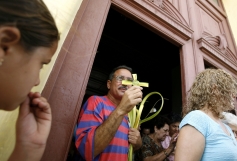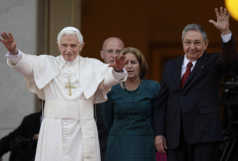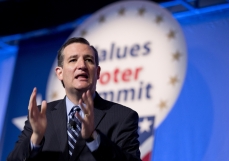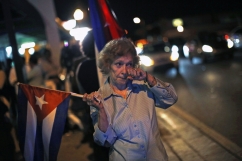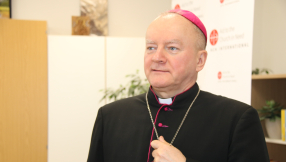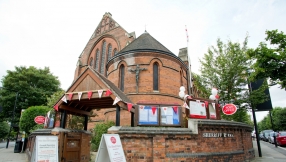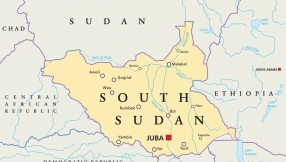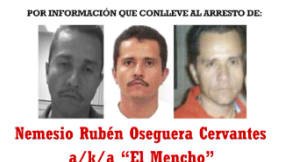The breakthrough in relations between Cuba and the US has been widely welcomed by a world which increasingly saw America's attempts to keep Cuba isolated as a petty relic of the Cold War.
According to this narrative, successive US administrations have been too indebted to powerful lobby groups of right-wing Cuban exiles to make any headway in changing the relationship between the two countries, even if they had wished to. In fact, Cuba has needed the US more than the US has needed Cuba; lifting trade and travel restrictions and establishing normal diplomatic relations would be useful to the US, but not enough to justify the political pain they would involve.
Now, however, President Obama has shown that since he no longer needs to consider winning votes since he is in the middle of his second and final term, and since the resolutely anti-Obama upper and lower Houses are both controlled by Republicans, he will go as far as he can – and further than anyone really expected – in breaking the logjam. Along with the mutual exchange of prisoners – Cuba has released Alan Gross and the US has released three Cubans – he announced on Wednesday that economic relations would be liberalised, an embassy would open in Havana, and high-ranking US officials including Secretary of State John Kerry would review Cuba's designation as a state sponsor of terrorism. Travel restrictions would also be eased, allowing family visits, official government business and educational activities. Tourist travel remains banned, but this restriction will rapidly become a dead letter.
One of the surprises thrown up by the White House announcement is the involvement of Pope Francis. A statement of congratulation released by Vatican secretary of state Pietro Paolin said: "In recent months, Pope Francis wrote letters to the President of the Republic of Cuba, His Excellency Mr Raúl Castro, and the President of the United States, The Honorable Barack H Obama, and invited them to resolve humanitarian questions of common interest, including the situation of certain prisoners, in order to initiate a new phase in relations between the two Parties.
"The Holy See received Delegations of the two countries in the Vatican last October and provided its good offices to facilitate a constructive dialogue on delicate matters, resulting in solutions acceptable to both Parties.
"The Holy See will continue to assure its support for initiatives which both nations will undertake to strengthen their bilateral relations and promote the wellbeing of their respective citizens."
These meetings demonstrate the considerable reach and influence of the Vatican. They are also in accord with the long-stated wish of the Churches – and not just the Roman Catholic Church – for a change.
Bishop Oscar Cantú, chairman of the Bishops' Committee on International Justice and Peace, said in a statement on Wednesday that the president's move "will foster dialogue, reconciliation, trade, cooperation and contact between our respective nations and citizens".
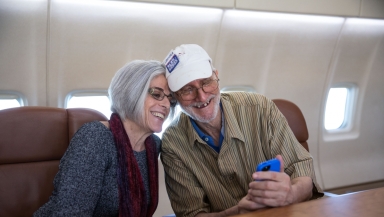
"We believe it is long past due that the United States establish full diplomatic relations with Cuba, withdraw all restrictions on travel to Cuba, rescind terrorist designations aimed at Cuba, encourage trade that will benefit both nations, lift restrictions on business and financial transactions, and facilitate cooperation in the areas of environmental protection, drug interdiction, human trafficking and scientific exchanges," Bishop Cantú added.
Archbishop Thomas Wenski of Miami, which has a large population of Cuban-Americans, issued a statement saying that the move appears to be "a real game-changer". Pope Francis, he said, "did what popes are supposed to do: build bridges and promote peace. He acted much like his namesake, Francis of Asissi, who during the fifth crusade, went to Egypt to meet with the Sultan al Kamil in the interest of peace."
He continued: "The Church in Cuba has always opposed the embargo, arguing that it was a blunt instrument that hurt the innocent more than the guilty; and the US Church has supported the Catholic Church in Cuba. We have consistently advocated that the US should revise this policy, in the hope that engagement and dialog would prove more helpful in improving conditions in Cuba than a policy of confrontation and isolation."
Cuba's human rights record is still a matter of genuine concern. However, Wenski continued: "In comments that Raul Castro made, he seemed to indicate that his government was open to engage in conversations with the US on issues related to democracy and human rights. Progress in this area is normally the result, and not the precondition, of such talks - and so the prospect of such talks is a positive development."
Republican-leaning clergy have been less sympathetic to the lifting of restrictions, however – and some Republican politicians have been incandescent.The president of the National Hispanic Christian Leadership Conference, Rev Dr Samuel Rodriguez, said that the normalisation of diplomatic relations "prompts both concern and hopeful expectations".
He said: "First, I am concerned that normalising diplomatic ties without addressing Castro's horrendous human rights record serves as a de facto endorsement for one of the most oppressive regimes in recent history. As a result of Castro's totalitarian rule, millions live in poverty, thousands lie in prisons, and many have lost their lives. In addition, the God-given rights of Cuban citizens are held hostage to governmental persecution.
"Nevertheless, if this controversial step results in the alleviation of hunger and opens the door for personal freedoms to flourish, then I pray this decision will serve as a catalytic step in unleashing the followers of Jesus to be the Church both inside and outside of the island nation, addressing the spiritual and physical needs of the Cuban people."
Arguably Cuba's poverty is at least partly due to the sanctions imposed by successive US governments, as Catholic campaigners have argued. However, Rodriguez' reservations were dwarfed by those of Republican Senator Mark Rubio of Florida, who is descended from Cuban immigrants and draws much electoral support from Cuban exiles. Speaking with barely-contained fury, he said: "I now know for a fundamental truth that this is going to make the day democracy comes to Cuba even further away." proclaimed. He also said that "I know this regime's true nature. I interact with people that have been oppressed by it every single day. These changes will do nothing to change their behavior towards the Cuban people. [The regime] will be just as repressive a year from now as it is today." He said that the relaxation of restrictions was "outrageous and ridiculous" and "a concession to tyranny".
Rubio is arguably swimming against the tide of history, with a poll by Florida State University finding that 68 per cent of Cuban Americans favour normalising relations with Cuba. Only 41 per cent of those 65 and over are in favour, however, while 88 per cent of those between the ages of 18 and 29 do.
A potential Republican presidential rival to Rubio, former Florida governor Jeb Bush, has also come out against the Obama move, posting on his Facebook page that "the benefactors of President Obama's ill-advised move will be the heinous Castro brothers who have oppressed the Cuban people for decades". Both may find their stance an electoral liability when faced with large numbers of Hispanic voters who welcome the president's initiative.
In Cuba itself, the news has been widely welcomed. Church bells rang in the capital, Havana. A statement from the Reformed Presbyterian Church in Cuba said that it "gives thanks to God and celebrates these agreements with joy. For decades we have built bridges of encounter with the exchange of visits between Cuban and American churches; we have engaged in contributing to the Gospel ideal to strive for peace and justice; and we have raised our voice against the harsh economic and trade measures imposed on US policy for our peoples."
Whether the normalisation of relations – which is far from complete, as without support from the Congress and Senate the president's powers are limited – is the prelude to social and political reform in Cuba remains to be seen. However, with the inevitable influx of American travellers and American money, it is impossible to imagine the country staying the same.










